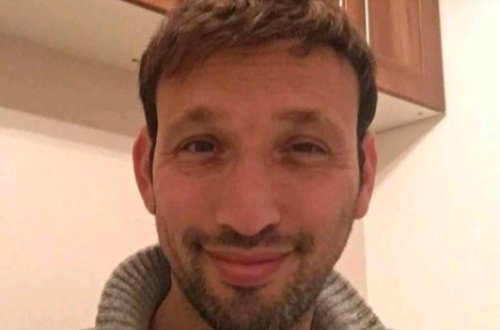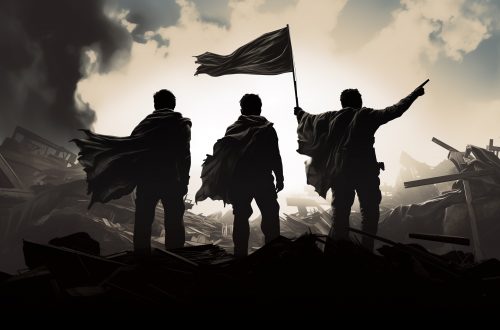A letter, expressing opposition to Israel boycotts, recently appeared in the Guardian.
Cultural boycotts singling out Israel are divisive and discriminatory, and will not further peace. Open dialogue and interaction promote greater understanding and mutual acceptance, and it is through such understanding and acceptance that movement can be made towards a resolution of the conflict.
Ultimately we all believe in a two-state solution so that the national self-determination of both peoples is realised, with the state of Israel and a Palestinian state living side by side in peace and security.
Signatories included Adele Geras, Tom Holland, Maajid Nawaz and Simon Schama, together with many other figures from politics and the arts. Just yesterday, by contrast, a full page advertisement appeared in the Guardian pledging support for a boycott of Israeli universities, and signed by 343 British academics.
Perhaps the most high profile supporter of the anti-boycott post was J. K. Rowling, and her inclusion on the list prompted a horrified response from a Palestinian teacher, Mia Oudeh, who works in Dunfermline. The Herald on Sunday introduces this story with the approving headline:
A Harry Potter fan has called out JK Rowling in the best way possible
It’s an awful letter.
You see, my Battle of Hogwarts dreams have always had the death eaters as Zionists, and Harry and his peers as Palestinians.
Nice. She continues:
Knowing that the idea for your epic novels was from World War II and the Nazis, I naturally drew parallels between the books and Zionist Israel and Palestine.
It is hardly ‘natural’ to compare the Nazis with Israelis – it is perverse.
She goes on to argue that the fact power is unevenly distributed in I/P means that Israel must be in the wrong. This isn’t logical, and many have speculated as to what the situation would be if the power dynamics were reversed.
Imagine if ISIS or Hamas had Israel’s weapons, army, air force, US support, and nuclear arsenal. Their enemies would’ve been annihilated long ago. If Israel truly wanted to destroy Gaza, it could do so within a day, right from the air. Why carry out a more painful, expensive ground incursion that risks the lives of its soldiers?
This doesn’t invalidate criticism of Israel’s conduct of war or any of its other policies – but Oudeh goes way beyond this in aligning Israel/Zionists with forces of existential evil.
As one of my dear friends so aptly put, will these bridges of peace bridge the Palestinians who are literally fenced into ghetto villages by an 8m concrete wall, checkpoints and watch towers (which eerily look like the watch towers of Nazi concentration camps) to the land they have been cut off from, which Israelis can access at any time?
She then turns to Ahmed Manasra. There is no indication in her condemnation of onlookers’ responses to the injured teenager that he had stabbed anyone and since confessed to the attack, or that he was treated in an Israeli hospital.
J. K. Rowling has now written a response. She reminds readers of an episode when Dumbledore agreed to a meeting with Snape:
Dumbledore has been summoned by a Death Eater, Severus Snape. At that point, Snape is a subscriber to the inhuman philosophy of Voldemort. He is probably a killer, certainly a betrayer of two of the people Dumbledore loved most, and the man who had sent Voldemort after an innocent child in the knowledge that Voldemort would kill him.
For those who don’t know the story, Dumbledore is a good wizard and Snape, as Rowling indicates here, a follower of the evil Voldemort. She goes on:
I think readers assume that Dumbledore is wise enough, knowledgeable enough and compassionate enough to sense that Snape, though he has led a despicable adult life, has something human left inside him, something that can be redeemed.
Rowling’s argument seems to be that one should keep channels of communication open, take risks, in order to achieve a peaceful outcome. I’ll quote what comes next at some length:
Dumbledore is an academic and he believes that certain channels of communication should always remain open. It was true in the Potter books and it is true in life that talking will not change wilfully closed minds. However, the course of my fictional war was forever changed when Snape chose to abandon the course on which he was set, and Dumbledore helped him do it. Theirs was a partnership without which Harry’s willingness to fight would have been pointless.
The Palestinian community has suffered untold injustice and brutality. I want to see the Israeli government held to account for that injustice and brutality. Boycotting Israel on every possible front has its allure. It satisfies the human urge to do something, anything, in the face of horrific human suffering.
What sits uncomfortably with me is that severing contact with Israel’s cultural and academic community means refusing to engage with some of the Israelis who are most pro-Palestinian, and most critical of Israel’s government.
I assume it’s not her intention, but Rowling seems to be going along with Oudeh’s parallel between Zionists and followers of Voldomort. Dumbledore only goes to meet Snape because he hopes he will give up his views completely. Segueing from that example to an assertion of Israel’s ‘injustice and brutality’ reinforces the implied parallel. Of course in the books Voldemort is evil, and there is no place for a One Voice movement in which Death Eaters can sit down with their opponents and compare narratives. But Israel/Palestine is not a children’s fantasy of good versus evil. I’m inclined to share Rowling’s preference for Israeli voices who are critical of their government – but what of the Palestinian leadership?
For a more even-handed – and very effective – comment on these debates I strongly recommend Maajid Nawaz’s recent imaginative dialogue between an Israeli and a Palestinian.


